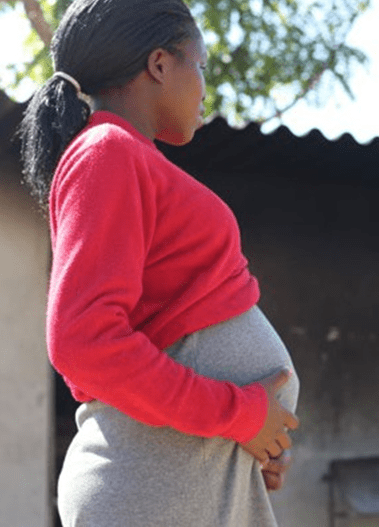Fourteen-year-old, *Tinotenda a Form 2 student at a school on the outskirts of Harare shocked her parents when they discovered that she was pregnant. Her mother became helpless as she did not know what she could do to rectify the situation. When she found out about the Safe Space in Norton, she approached the Safe Space Facilitator, Russia Kupara. Tinotenda’s mother narrated what had happened to her minor daughter and asked for advice on how best to deal with the situation. Kupara explained to Tinotenda’s mother the importance of supporting Tinotenda so that she could open up and provide all the information surrounding the case. This, Kupara explained, would help Tinotenda open up and enable her to get the necessary support services.
In early 2021, the 22 year-old man who had abused and impregnated Tinotenda asked her to come and live with him, with the promise to pay the bride price later on. Tinotenda’s mother was against the idea of the daughter marrying at a young age. Through her participation in the Safe Space sessions, Tinotenda’s mum learnt that it was a criminal act for an adult man to be involved in an intimate sexual relationship with a 14-year old child. She continued to work with the Safe Space facilitator who also requested her to find out more information from Tinotenda regarding the “relationship”. This was very helpful as this enabled Tinotenda to make revelations that she was unwell and medical assessment showed that she had a Sexually Transmitted Infection (STI).
Through the safe space facilitation, Tinotenda was referred to the hospital where she was treated for the STI. She also reported her case to the police, where she got assistance from the Victim Friendly Unit, who are now investigating her case, and was also linked to the Social Services Department Tinotenda is currently attending sessions at the Safe Space in Norton, which is run by Family AIDS Caring Trust (FACT) where she continues to receive psychosocial support as a Gender Based Violence (GBV) survivor whilst her case is being handled by the various stakeholders.
The Safe Space program provides a platform where women and girls are able to meet at community level to share information on GBV, Sexual Reproductive Health and Rights and HIV. Survivors of GBV are also able to access psychosocial support and other GBV mitigation services. Trained facilitators at the Safe Spaces are also equipping women and girls, including survivors like Tinotenda with knowledge and skills to engage in livelihood strengthening activities.
The United Nations Population Fund (UNFPA) is supporting FACT to conduct the Safe Spaces under the Zero Tolerance for GBV 365 project which is funded by the governments of Ireland and Sweden. The main purpose of the project is to strengthen coordination of GBV actors in Zimbabwe through implementation of systemised GBV interventions.
Tonderai Gonye, FACT Regional Manager, says apart from women and girls accessing psychosocial support and GBV mitigation services, facilitators at these Safe Spaces have also been establishing referrals for GBV survivors and those in need of health related services.
“Most activities at the Safe Spaces were affected by the lockdown restrictions. In the first 2 months of 2021 no meetings were conducted at Safe Spaces. However due to the increase in GBV cases during the lockdown, facilitators continued to offer PSS/GBV mitigation services to women and girls in their different communities,” Gonye says.
“Facilitators also make use of community gatherings such as food distribution, water points and funerals to give out information on GBV referral pathways and COVID-19 awareness messages. After the lifting of lockdown restrictions meetings commenced and COVID-19 preventions measures are being followed at Safe Spaces that include wearing of masks, use of sanitizers and maintaining social distances.”
Many stakeholders are involved in this initiative including the Judicial Services Commission for legal services and the Ministry of Women Affairs, Community, Small and Medium Enterprises who are providing escort fees or transport for survivors to access key services.


